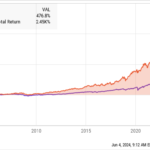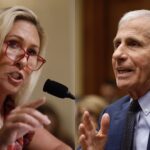A third term for Prime Minister Narendra Modi looks assured with the National Democratic Alliance hovering around the 292 mark as votes for the Lok Sabha polls were counted on Tuesday. But the day included a resurgent opposition, which did more than the modest expectations raised by the polls.
The ruling Bharatiya Janata Party has been decimated in the country’s two largest states, Uttar Pradesh and Maharashtra. In West Bengal, Mamata Banerjee’s Trinamool Congress swept to victory despite initially appearing to be a heavy loser.
Modi thanked the voters
Addressing the nation from the BJP headquarters in Delhi after it appeared the party would form a new government, even with the support of its necessary NDA partners, Prime Minister Narendra Modi thanked voters and said, “Today’s victory is the world’s victory. The biggest democracy.”
Modi will become only the second leader to win three terms after founding prime minister Jawaharlal Nehru and promised a transformative five years ahead. Under him, India has become the world’s fastest growing major economy and he has said he wants to make it the world’s third largest within three years, after the United States and China.
The ‘kingmakers’
The spotlight now turns on the BJP’s two main allies, N Chandrababu Naidu in Andhra Pradesh and Nitish Kumar in Bihar, who are among the 30 or so seats that will allow the NDA to form the next government.
Both Kumar and Naidu have been part of the opposition, leaving the NDA due to various issues.
UP, Maharashtra is a key factor
BJP’s biggest reversals came in Uttar Pradesh and Maharashtra. In Uttar Pradesh, the Samajwadi Party (SP) put up an impressive performance. The biggest star of the day was probably Akhilesh Yadav, who surprised SP analysts by winning 36 seats compared to BJP’s 33. Congress won seven seats. Exit polls have predicted that the BJP will win nearly 70 seats in the state. Mayawati’s BSP collapsed without a single seat and her supporters appeared to be tactical and switched to support the SP.
In Maharashtra, the prediction that the BJP would get a heavy blow turned out to be correct. The Maha Vikas Aghadi alliance of Shiv Sena (UBT), Congress and NCP (SP) has fared better than expected.
a great war
Several celebrity politicians faced a fierce battle during the elections and in Amethi, union minister Smriti Irani, who defeated Rahul Gandhi five years ago, lost to Gandhi family loyalist Kishori Lal Sharma. In Thiruvananthapuram, Shashi Tharoor defeated BJP’s Rajiv Chandrasekhar in a fierce three-way contest. Tharoor finally came forward when coastal voters voted.
Actor Suresh Gopi is BJP’s first winner in Thrissur, Kerala. Here too the Congress was defeated in a three-cornered war.
Rahul Gandhi won in two constituencies, Wayanad in Kerala and Raebareli in Uttar Pradesh, where he got 3.88 lakh votes. Asked at a press conference which constituency he would resign from, he openly admitted that he was undecided.
“The country has unanimously and clearly stated, we don’t want Narendra Modi and Amit Shah to run this country, we don’t like the way this country is being run,” Gandhi told reporters. message.”
But in terms of pure numbers, the biggest winner of the day was probably former Madhya Pradesh chief minister Shivraj Singh Chauhan who showed the strength of the state by winning more than 8 lakh votes. Prime Minister Modi won in Varanasi by 1.5 lakh votes, down from a margin of 4.79 lakh votes in 2019.
What it means for markets and policy making
The poll results rattled investors, with stocks falling sharply as the results showed that Modi, for the first time since coming to power in 2014, is dependent on regional parties whose political loyalties have wavered over the years.
Analysts say this could introduce some uncertainty in policy-making after a decade in which Modi ruled with authority.
Lok Sabha campaign recap
PM Modi started his re-election campaign focusing on his achievements in the last 10 years, but later targeted the Congress by accusing him of favoring certain communities and sections, which the opposition parties denied.
The opposition has largely campaigned on a program of affirmative action and saving the Constitution from what it calls Modi’s “dictatorial rule”, a charge denied by the BJP.
Unemployment and inflation are also top concerns for voters, the survey said.
Saga of seven phases
The election saw around 642 million voters cast their ballots in seven phases. This is despite several election phases during the hot summer days of May and June. A record 312 million women also participated in the electoral process, the Election Commission said.
Votes were cast in more than 1 million polling stations, with major states like Uttar Pradesh, West Bengal, and Bihar going to polls in each of the seven phases.
Under the country’s first multiparty electoral system, a party or coalition must win 272 seats to secure a majority.
(With agency input)




